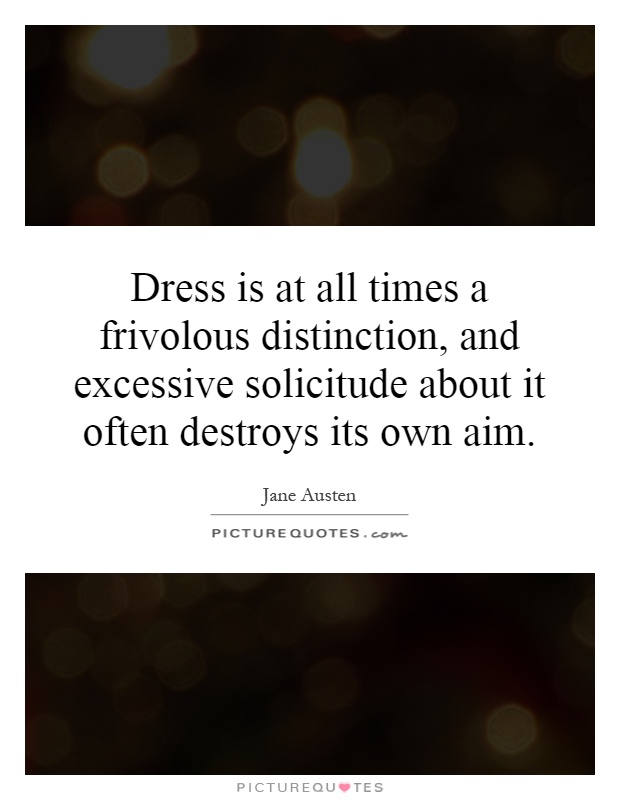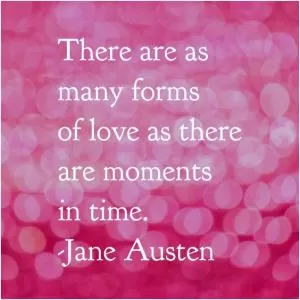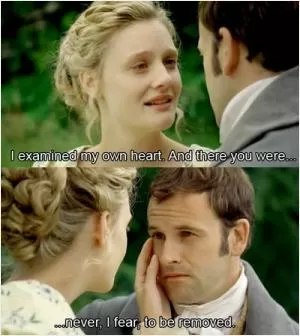Dress is at all times a frivolous distinction, and excessive solicitude about it often destroys its own aim

Dress is at all times a frivolous distinction, and excessive solicitude about it often destroys its own aim
In the world of Jane Austen's novels, dress and appearance play a significant role in the social hierarchy and interactions of the characters. The quote, “Dress is at all times a frivolous distinction, and excessive solicitude about it often destroys its own aim,” reflects Austen's critique of the superficiality and vanity associated with the obsession over one's outward appearance.Throughout Austen's works, characters are often judged and valued based on their clothing, manners, and overall presentation. The wealthy and fashionable characters, such as Mr. Darcy in "Pride and Prejudice" or Sir Walter Elliot in "Persuasion," are often portrayed as shallow and self-absorbed, placing too much importance on their external image. These characters are often contrasted with those who prioritize inner qualities and values, such as Elizabeth Bennet or Anne Elliot, who are admired for their intelligence, wit, and integrity rather than their fashion sense.
Austen uses dress as a tool to reveal the true nature of her characters and to highlight the absurdity of society's emphasis on appearances. The quote suggests that those who are overly concerned with their clothing and outward image are missing the point and are ultimately undermining their own goals. Characters who are preoccupied with their appearance often come across as insincere, shallow, and lacking in substance.












 Friendship Quotes
Friendship Quotes Love Quotes
Love Quotes Life Quotes
Life Quotes Funny Quotes
Funny Quotes Motivational Quotes
Motivational Quotes Inspirational Quotes
Inspirational Quotes